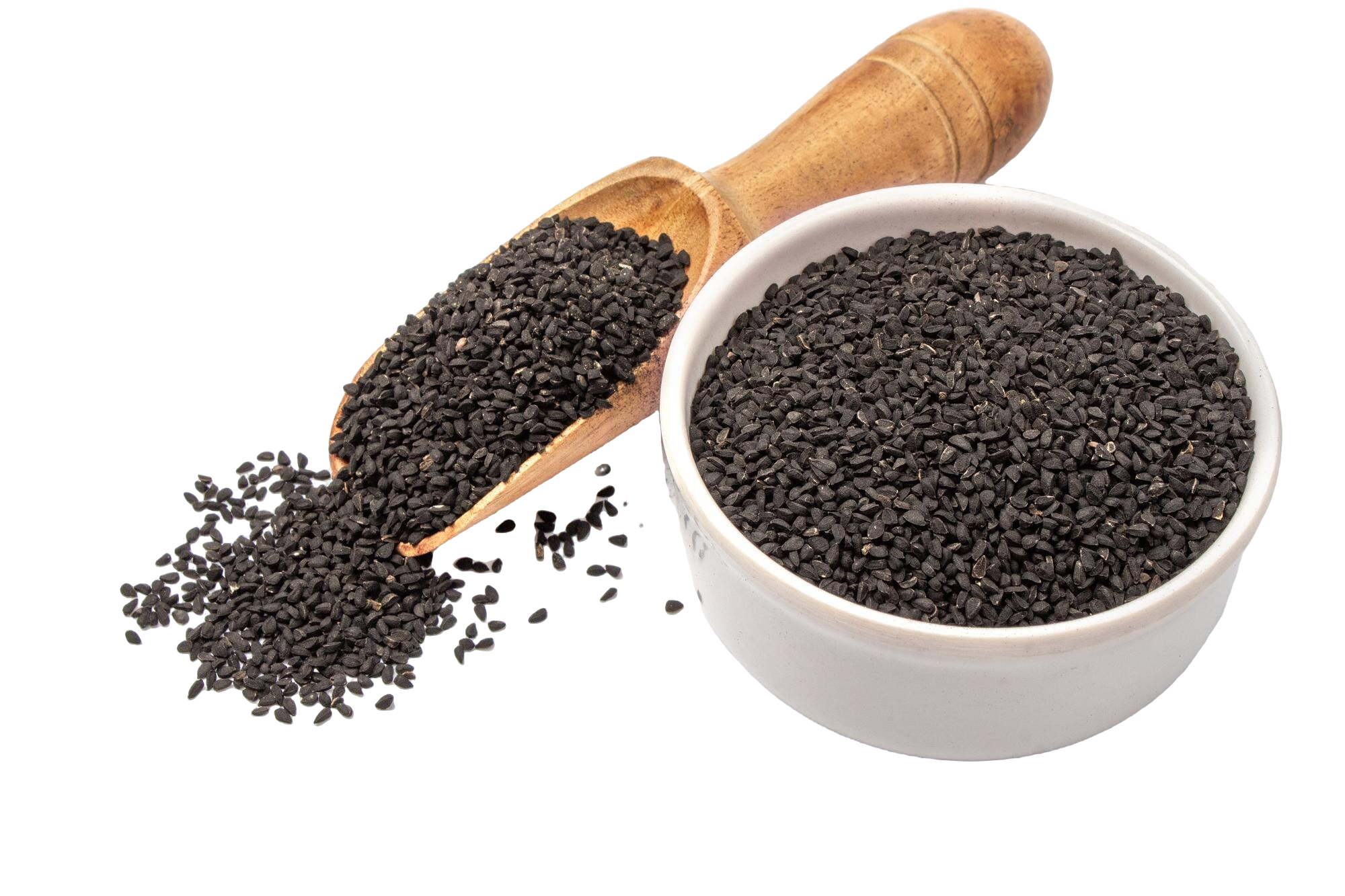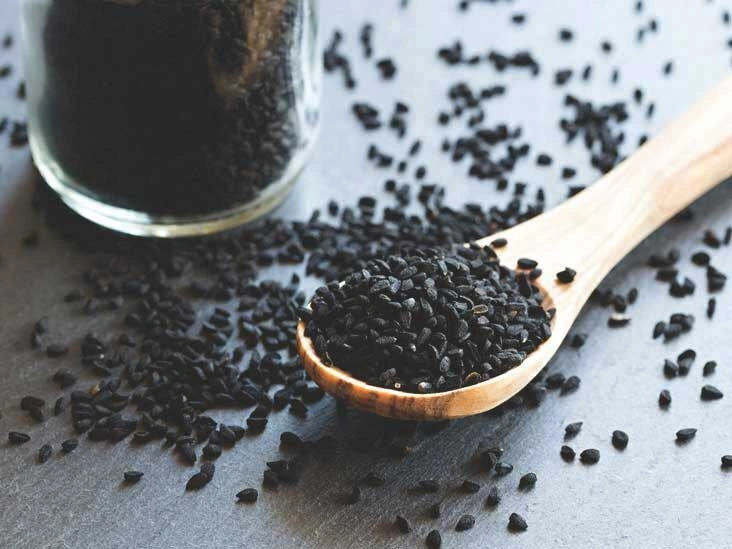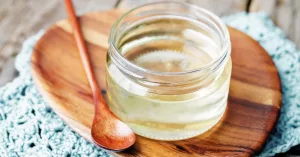Kalonji is aromatic and carries a range of therapeutic qualities. While supplements might offer health advantages, further investigation is necessary to fully understand their benefits and any possible downsides.
Also referred to as black cumin or nigella (scientifically Nigella sativa), kalonji is a member of the buttercup family of flowering plants.
The plant reaches about 12 inches (30 cm) in height and forms a fruit whose seeds are used as a tasty spice in numerous cuisines.
Beyond its culinary role, kalonji is celebrated for its medicinal attributes.
Its use as a natural remedy goes back centuries, historically employed for ailments from bronchitis to diarrhea.
Here are nine notable science-supported benefits of kalonji, along with ideas for incorporating it into your meals.

1. Rich in antioxidants
Antioxidants are molecules that neutralize damaging free radicals and help prevent oxidative injury to cells. Research indicates antioxidants can have significant effects on health and disease prevention.
Some studies suggest antioxidants might protect against various chronic illnesses, including cancer, diabetes, cardiovascular disease and obesity.
Several constituents in kalonji, such as thymoquinone, carvacrol, t-anethole and 4-terpineol, contribute to its strong antioxidant activity.
Laboratory research from 2024 also indicates that kalonji essential oil may possess antioxidant effects. Nonetheless, additional studies are required to clarify how the antioxidants in kalonji impact human health.
2. May reduce cholesterol
Cholesterol is a waxy substance present throughout the body. While some cholesterol is essential, excess levels can accumulate in the bloodstream and raise the risk of heart disease.
Kalonji has been found to be particularly effective at lowering cholesterol.
A 2021 review of existing studies observed that kalonji was linked to meaningful reductions in total and “bad” LDL cholesterol, along with blood triglyceride levels.
Researchers note that further studies with larger participant groups and standardized kalonji preparations are needed.
3. Potential anti-cancer effects
Kalonji is abundant in antioxidants, which help counter harmful free radicals—molecules that can play a role in disease development, including cancer.
Research has shown promising results regarding the possible anti-cancer actions of kalonji and its active ingredient, thymoquinone.
For example, a 2021 study reported that thymoquinone triggered cell death in blood cancer cells.
A 2018 investigation demonstrated that thymoquinone in kalonji hindered breast cancer cells from metastasizing.
Overall, studies suggest kalonji and its components might be effective against various cancers, including:
- pancreatic
- lung
- cervical
- prostate
- skin
- colon
- liver
- renal
- ovarian
More research is necessary to determine whether kalonji has cancer-fighting effects when used as a culinary spice or as a supplement in humans.
4. May combat bacteria
Pathogenic bacteria cause a wide array of dangerous infections, from ear infections to pneumonia.
Several in vitro studies indicate kalonji might have antibacterial activity and may be effective against particular bacterial strains.
Research from 2020 reports it can treat staphylococcal skin infections.
Another 2019 laboratory study showed kalonji was notably effective at killing methicillin-resistant Staphylococcus aureus (MRSA), a difficult-to-treat, antibiotic-resistant strain.
However, human research is limited, and more trials are required to evaluate how kalonji impacts various bacterial strains in the body.
5. May reduce inflammation
Inflammation is usually a normal immune reaction that defends the body from injury and infection.
Chronic inflammation, however, is thought to contribute to many illnesses, such as cancer, diabetes and cardiovascular disease.
Multiple studies show that kalonji may exert potent anti-inflammatory effects in the body.
A 2019 study found that taking 1,000 milligrams (mg) of kalonji oil daily for 8 weeks lowered markers of inflammation and oxidative stress in people with liver disease.
Similarly, a study showed that kalonji helped decrease inflammatory markers in participants.
Despite encouraging results, most human trials focus on individuals with particular conditions. Additional research is needed to understand how kalonji might influence inflammation in the general population.
6. Might help safeguard the liver
The liver plays a vital role: it removes toxins, metabolizes medications, processes nutrients and produces essential proteins and chemicals.
Several promising animal studies suggest kalonji may protect the liver from injury and damage, though many of these are older and conducted in animals.
In one study, rats injected with a toxic chemical were given kalonji or not; kalonji reduced the chemical’s toxicity and protected against liver and kidney injury.
A study credited kalonji’s protective effects to its antioxidant content and its capacity to lower inflammation and oxidative stress.
A review of four randomized controlled trials in people with metabolic dysfunction-associated steatotic liver disease (MASLD) found that kalonji supplementation reduced:
- hepatic steatosis
- liver enzyme levels
- inflammatory markers
However, the reviewers noted that higher-quality trials are necessary.
Overall, more human studies are required to evaluate how kalonji affects liver health.
7. May support blood sugar control
Elevated blood sugar can cause unpleasant symptoms such as increased thirst, unintended weight loss, fatigue and trouble concentrating.
Over time, poorly controlled blood sugar can lead to serious complications like nerve damage, vision problems and impaired wound healing.
Kalonji may help stabilize blood sugar levels and potentially prevent these harmful outcomes.
A 2025 meta-analysis of 16 trials in people with type 2 diabetes found that kalonji supplementation significantly lowered:
- fasting blood glucose
- glycated hemoglobin (HbA1c)
- total cholesterol
- LDL cholesterol
8. May help prevent stomach ulcers
Stomach ulcers are painful sores that occur when stomach acid erodes the protective mucus lining of the stomach.
Some research, including a 2023 review, suggests that based on animal studies kalonji might guard against ulcers by preserving the stomach lining, lowering stomach acid secretion, and eliminating H. pylori, a bacterium that can damage the stomach’s lining.
In a 2020 trial, people with H. pylori and functional dyspepsia received antibiotics, kalonji or antibiotics plus kalonji for 8 weeks. The group given kalonji experienced higher H. pylori eradication rates and improved quality of life versus placebo.
Bear in mind much of the evidence comes from animal work. Human studies are needed to clarify kalonji’s impact on stomach ulcer formation.
9. Simple to incorporate into your meals
There are many easy ways to include kalonji in your diet.
With a slightly bitter flavor often compared to a blend of oregano and onion, it is commonly used in Middle Eastern and South Asian dishes.
Typically lightly toasted and then ground or used whole, it adds aroma and taste to breads and curries.
Some people eat the seeds raw or mix them with honey or water. They can also be sprinkled into oatmeal, smoothies or yogurt.
Supplements are sold in capsule or softgel formats for a concentrated kalonji dose.
Kalonji may not suit everyone
Although kalonji is linked to many potential health benefits and is generally safe as a culinary spice, taking concentrated kalonji supplements or applying kalonji oil can carry risks.
For instance, there are reports of contact dermatitis after topical application. If you plan to use it on the skin, perform a patch test first by applying a small amount to make sure no adverse reaction occurs.
Additionally, some laboratory studies suggest kalonji and its components can slow blood clotting, potentially causing thrombocytopenia, a serious condition. If you take blood-thinning medications, consult your physician before using kalonji supplements.
Moreover, consuming kalonji in doses higher than those found in food is probably unsafe during pregnancy, so its use is currently not advised at this time.
If you are pregnant, consume it sparingly and discuss any concerns with your healthcare provider.
Bottom line
The seeds of the kalonji plant are prized for both culinary uses and medicinal potential.
Long used to address a variety of ailments, kalonji is associated with numerous health advantages.
However, many of these benefits have so far been observed mainly in laboratory or animal studies.
While more research is warranted, incorporating kalonji into your diet or taking it as a supplement may offer positive effects for several health aspects.

























Leave a Reply
You must be logged in to post a comment.